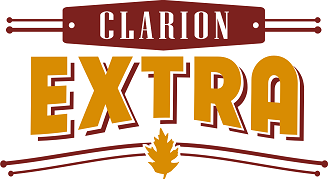Dozens of Washington Township residents are seeking answers about the extension of sewer lines in the township, but many of them left a public meeting Wednesday unhappy about the answers they received,
The EADS Group, the engineering firm hired by the township to manage the project, hosted the meeting at the township fire hall. Washington Township supervisors weren’t present.
Marty English from the EADS Group explained the scope of the project to those who attended Wednesday.
Environmental Protection. The revised Act 537 plan was approved in November.
English said the sewer authority had been fined $25,000 “more than once” for being out of compliance with the plan.
He said the extension areas included 47 homes. Of those homes 44 were identified in a survey as having malfunctioning sewage system.
Several residents questioned the method used for the survey. English said the results were based on a survey.
The project area includes 33 customers in the northern area that extends along Route 208. Those customers will be served with a low-pressure system and grinder pumps.
The southern area includes 14 customers along Route 208. They will be served with a combination of gravity sewer and low-pressure grinder pumps.
English said the grinder pumps were more economical than building a gravity flow system. He said the topography of the area would have required a pumping station that would have cost “hundreds of thousands of dollars.”
There were questions about the grinders. English said the pumps would be owned and maintained by the township.
All repairs would be borne by the township. The pumps cost $5,000 apiece.
He said the pump’s life could be extended if certain items weren’t introduced into the system. Those items include diapers, wipes, Q-tips, coffee grounds, kitty litter, sand and rags.
English said the homeowner would be required to supply electricity to the pump. He said that may require improvements to the individual’s electrical service. In addition an alarm box would be attached to the exterior of the house.
Many of the residents were concerned about the cost to the property owner.
English outlined the sewer tap fees. The standard tap fee is $7,000, and there would be a discount if an easement is signed prior to Oct. 28 that would reduce the cost by $4,000.
A $500 early payment discount is offered to any customer who paid the tap fee prior to Jan. 31, 2010. English said the tap fees could be paid on an installment plan.
In addition to the mandatory tap fee, the homeowner is required cap the pipe entering and exiting the current septic tank. English said the septic tank remains the property of the homeowner.
The homeowner must install piping from the wall of the house to the grinder pump. The pipe must be four inch in diameter. English said the grinder pump will be located as close as possible to the house to reduce the cost to the homeowner.
A meter must be installed on existing public water source to monitor water draining into the sewer pipes. Water that does not enter the sewer system is not monitored.
The residents questioned the need for the meter and who would monitor the meter. English said that was a township issue and not an engineering question.
English said sewer bills will be issued to all residents within the service area regardless if they connect to the public sewer system.
The residents also asked if the Fryburg sewage plant could accommodate the increased flow once the project is completed. English said the plant was only operating at about 50 percent of capacity at this time.
English said PennVEST was the best way to finance the project. He said he hoped the funding would be “more grant and less loan.”
The estimated cost of the project is $1.1 million.
“The township is not trying to create problems but solve them” said English.
English said the timeline for the project would be for a PennVEST application in the fall of 2019. Construction would begin in the spring of 2020 and be competed in the fall of 2020. Property owners will be required to connect to the line within three months from the completion of the project.
EADS had a notary public at the meeting to arrange easements. Several of the residents took the opportunity to sign easements after the meeting.

